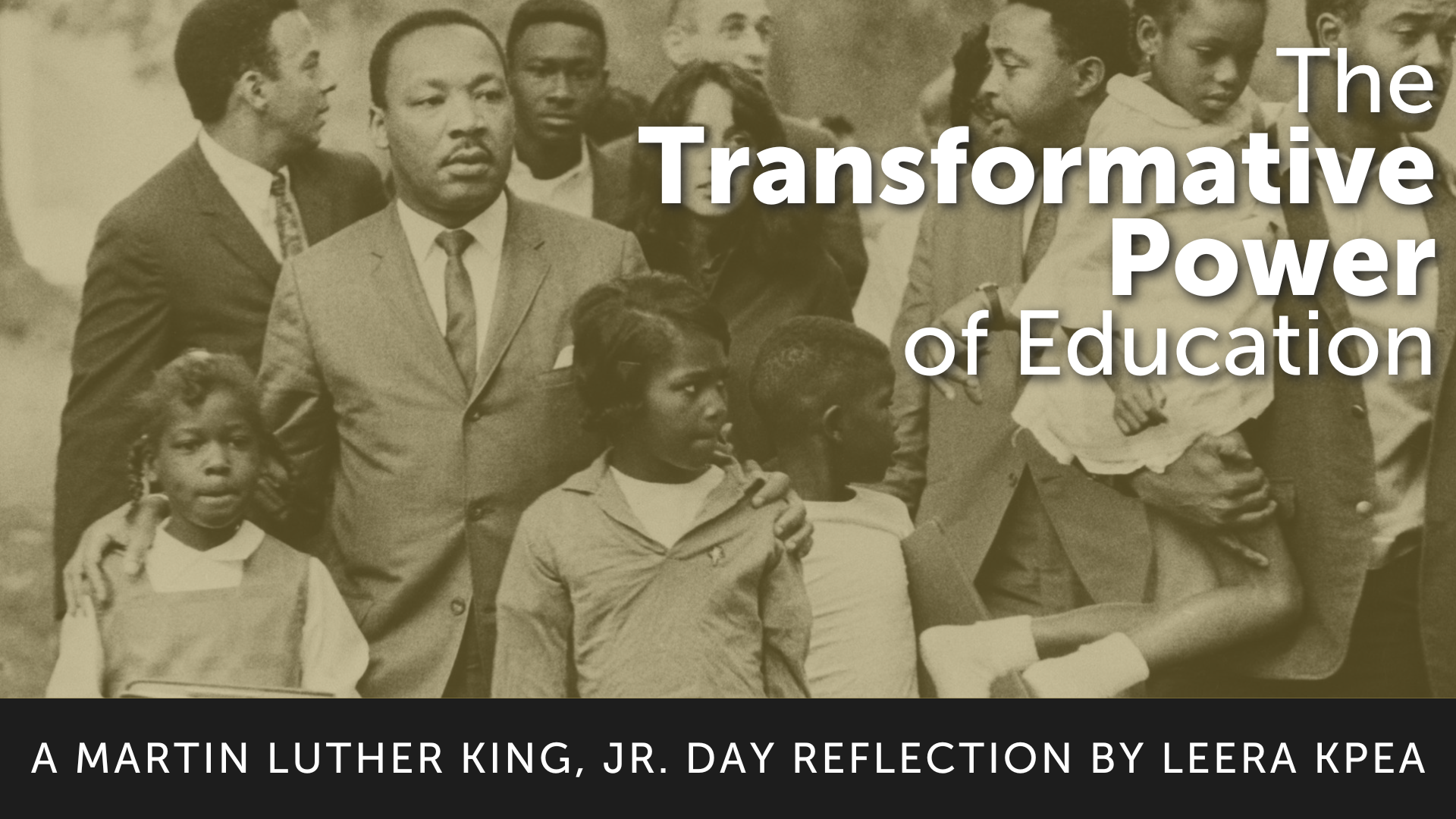The following is a Martin Luther King, Jr. Day Reflection by Leera Kpea, health & wellness teacher:
“If it falls your lot to be a street sweeper, sweep streets like Michelangelo painted pictures, sweep streets like Beethoven composed music, sweep streets like Leontyne Price sings before the Metropolitan Opera. Sweep streets like Shakespeare wrote poetry. Sweep streets so well that all the hosts of heaven and earth will have to pause and say: Here lived a great street sweeper who swept his job well,” said King. “If you can’t be a pine at the top of the hill, be a shrub in the valley. Be the best little shrub on the side of the hill. Be a bush if you can’t be a tree. If you can’t be a highway, just be a trail. If you can’t be a sun, be a star. For it isn’t by size that you win or fail. Be the best of whatever you are.”
As a teacher of color, delving into Martin Luther King, Jr.’s thoughts and views on education is not just an intellectual exploration, but a personal journey that resonates deeply with my experiences in the classroom. King’s vision for education, rooted in the struggle for civil rights and equality, holds particular significance for educators like me who navigate the complexities of teaching in a diverse, yet sometimes divided, educational landscape.
King’s perspective on education as a vehicle for social change hits home with me as I am acutely aware of the transformative power education can have in breaking down societal barriers. King’s call for equality in education was not merely a distant dream; it was a demand for justice and an insistence on dismantling the structures that perpetuated racial disparities. As a teacher of color, I find inspiration in King’s unwavering belief that education could be the catalyst for a more just and integrated society.
King’s emphasis on character development within the educational framework resonates deeply with my role as a mentor and guide for students. In a society that often grapples with stereotypes, prejudices, and preconceived notions, teaching extends beyond the transmission of academic knowledge. King’s vision prompts me to consider not only what my students know, but who they become. As a teacher of color, I strive to create a classroom environment that fosters empathy, understanding, and respect for diverse perspectives, echoing King’s call for a morally and spiritually grounded education.
King’s dream of integrated schools, where children of all races learn side by side, serves as a reminder of the importance of representation in education. I understand the significance of diverse role models in shaping students’ aspirations and fostering a sense of belonging. King’s vision encourages me to be a visible and positive presence, breaking down stereotypes and inspiring students to pursue their dreams regardless of societal expectations.
Moreover, King’s call for education to nurture critical thinking and civic engagement holds relevance in the current socio-political climate. I am committed to equipping my students with the skills to question, analyze, and actively participate in shaping a more inclusive society. King’s wisdom encourages me to empower my students to be informed, conscientious citizens who contribute to the ongoing struggle for justice and equality.
In conclusion, Martin Luther King, Jr.’s thoughts on education serve as a guiding force in my journey as a teacher of color. His vision inspires me to view education not just as a profession, but as a calling to contribute to the broader movement for social change. As I navigate the challenges and joys of the classroom, King’s legacy encourages me to be an advocate for justice, an ambassador of equality, and a beacon of hope for the transformative power of education in creating a more inclusive and harmonious society.

